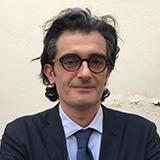
Giovanni Roti
Giovanni Roti
The main focus of my research is to identify new targets and small molecules therapeutics for aggressive leukemia subtypes. These research interests grew out of diverse experiences through my clinical and scientific training. My first exposure to research was during my clinical fellowship in Cristina Mecucci’s laboratory at the University of Perugia in Italy. My efforts focused on the development of denaturing high-performance liquid chromatography (DHPLC) and the identification of NPM1 gene in primary leukemia samples with normal karyotypes. During my tenure in Dr. Mecucci’s laboratory, we extended the DHPLC application beyond leukemia and into the mutational analysis in lymphoma, myelodysplastic syndromes, and congenital disorders. Because of my commitment to a physician-scientist career I had also been selected to participate, at the same institution, in a competitive Ph.D. program focusing on hematological malignancies and bone marrow transplantation. In 2007, I journeyed to Boston with the support of the EHA-ASH International fellowship and I began working in Dr. Kimberly Stegmaier at the Dana-Farber Cancer Institute and The Broad Institute of Harvard and MIT. Dr. Stegmaier gave me the unique opportunity to finish my Ph.D. studies while working as a post-doctoral fellow in her laboratory. My project began with the implementation of Gene expression-based high-throughput screening (GE-HTS) and its application to NOTCH1 mutant T-cell acute lymphoblastic leukemia. I performed a small-molecule library screen to identify modulators of mutated NOTCH1 in T-ALL, an effort that resulted in the discovery of a new class of modulators, SERCA inhibitors (e.g. thapsigargin) for this indication. Furthermore over the many years spent at the DFCI, in collaboration with Dr. James Bradner and Jun Qi, we leveraged the aberrant expression of the folic acid receptor in T-ALL and folate receptor-mediated endocytosis to deliver the first in class folate-thapsigargin derivative in vivo for Notch-activated cancer. In 2017 I relocated in Italy and established my laboratory with the support of a competitive grant from the Italian Association of Cancer Research. The initial phase of my research was to extend the studies on SERCA to develop inhibitors with better drug-like properties (Cell Chemical Biology, 2020). More recently I began interested in the intersection of i) transcriptomic and high-throughput phosphoproteomics to identify new target in pediatric cancer such as T-ALL ii) the development of forward screening approaches to identify recurrent pattern of response to drugs in high-risk leukemia patients. At the University of Parma, I have organized a team of highly qualified researchers with international experience who share my passion for basic science, including 2 post-doctoral fellow, 3 PhD students, and a research assistant.






